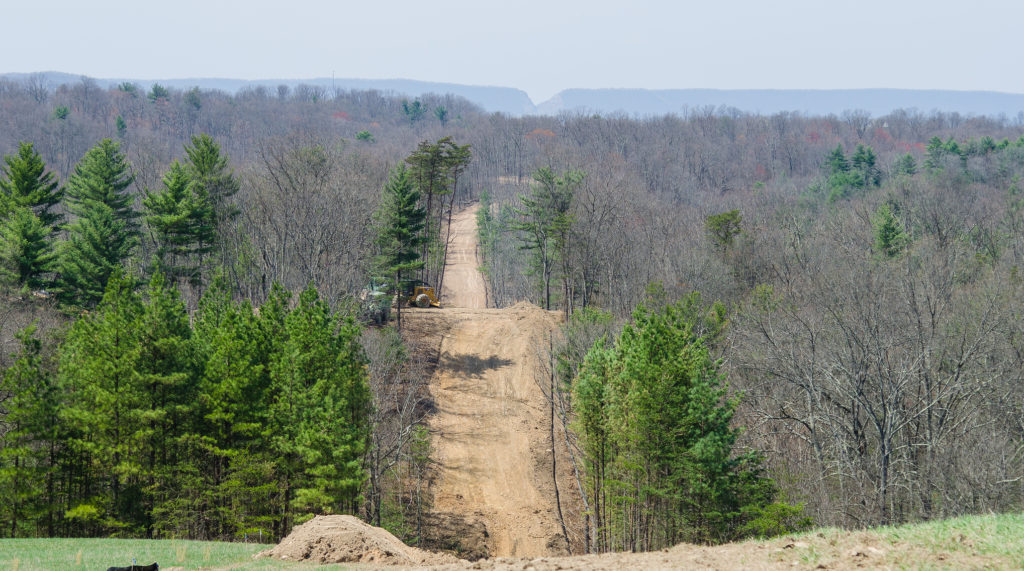Following legal battles staged on the federal circuit, a lawsuit from Virginia landowners against the Mountain Valley Pipeline (MVP) may be heard by the U.S. Supreme Court after filings on Wednesday. The suit challenges an 80-year-old congressional act, arguing that the system governing eminent domain is antiquated.
The Federal Energy Regulatory Commission (FERC), the agency that authorized the MVP to be built using eminent domain to acquire land, finds its origin in the Natural Gas Act of 1938. This provided that the Federal Power Commission (FPC), the precursor to FERC, regulates the transmission and wholesale transaction of electricity and natural gas in interstate commerce, also regulating the transportation of oil by pipeline in the U.S.
Over the past few years, FERC has been subject to criticism from communities affected by the approval of pipelines and other energy-related projects, with many asserting a bias against environmentalist groups. However, FERC’s decisions have been often upheld by the courts.
The D.C. Circuit Court dismissed the case in No Gas Pipeline v. Federal Energy Regulatory Commission (2014) after environmentalist groups petitioned FERC, alleging that the agency did not comply with the National Environmental Policy Act in authorizing a similar energy project near Jersey City, New Jersey.
In their opinion, the D.C. Circuit Court said the plaintiffs argued that “the actual bias is that FERC has consistently granted applications from pipelines. This adds nothing to the strength of an otherwise unsupported claim. Presumably under most regulatory schemes, by the time applicants and their expert counsel have worked through changes, adaptations, and amendments, they are not likely to pursue many certificates that are hopeless.”
“The fact that they generally succeed in choosing to expend their resources on applications that serve their own financial interests does not mean that an agency which recognizes merit in such applications is biased,” the court added.
Nevertheless, after the latest briefing filed Wednesday, petitioners are arguing that FERC should have never been given the power to authorize the MVP.
Mia Yugo, a lawyer with Gentry Locke said in a report from WSLS that the “first issue is the private non-delegation doctrine and the second issue is the right to private property.”
“So just because Congress passes a statute [Natural Gas Act], it doesn’t mean that Congress gets it right,” Yugo explained, adding that “when they don’t get it right the individuals or really anybody can go into court, if you have standing, can go into court and challenge that statute as unconstitutional.”
Landowners and pipeline opponents argue that FERC should have never been given the power to take land from citizens for the MVP in the first place. The lawyers opine that Congress cannot delegate its legislative powers – the Fifth Amendment’s power of eminent domain – to other entities for private use.
Regardless, the core question in the case for the Supreme Court to answer sometime in late 2019 or early 2020 is: “Does the U.S. Constitution allow a profit-seeking private entity to acquire land from an individual landowner for the purposes of private gain?” the petitioners ask.

